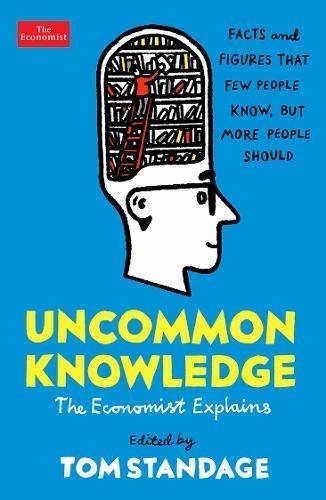What do you think?
Rate this book


The world can be an amazing place if you know the right questions to ask:
How did carrots become orange? What's stopping us from having a four-day week? How can we remove all the broken bits of satellite from orbit? If everything is so terrible, why is the global suicide rate falling?
The keen minds of the Economist love to look beyond everyday appearances to find out what really makes things tick. In this latest collection of The Economist Explains, they have gathered together the juiciest fruits of their never-ending quest for answers. For an uncommonly interesting read, take a peek at some Uncommon Knowledge - and pass it on! The world only gets more amazing when discoveries are shared.
228 pages, Kindle Edition
Published November 7, 2019